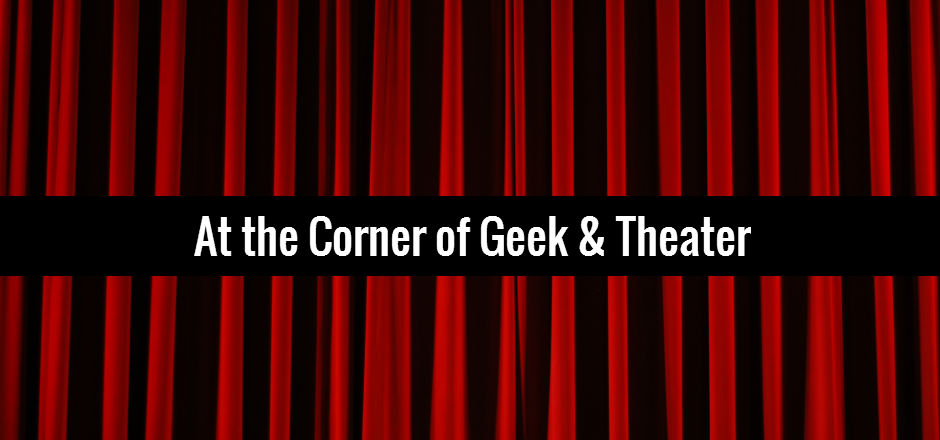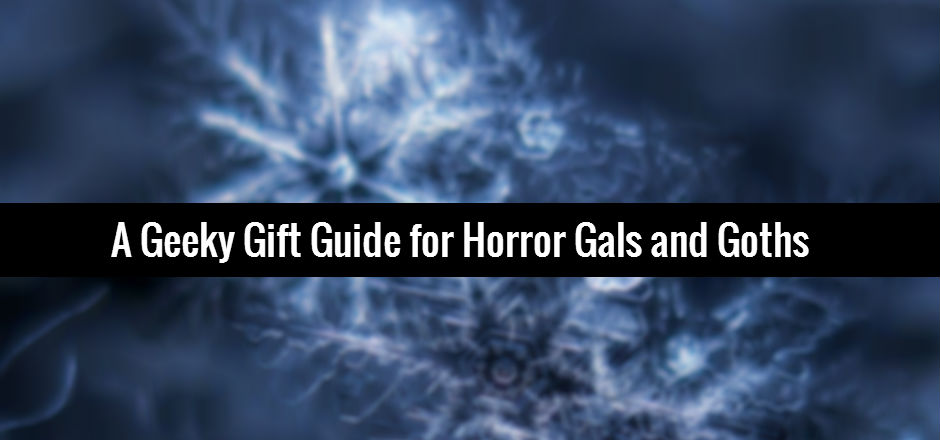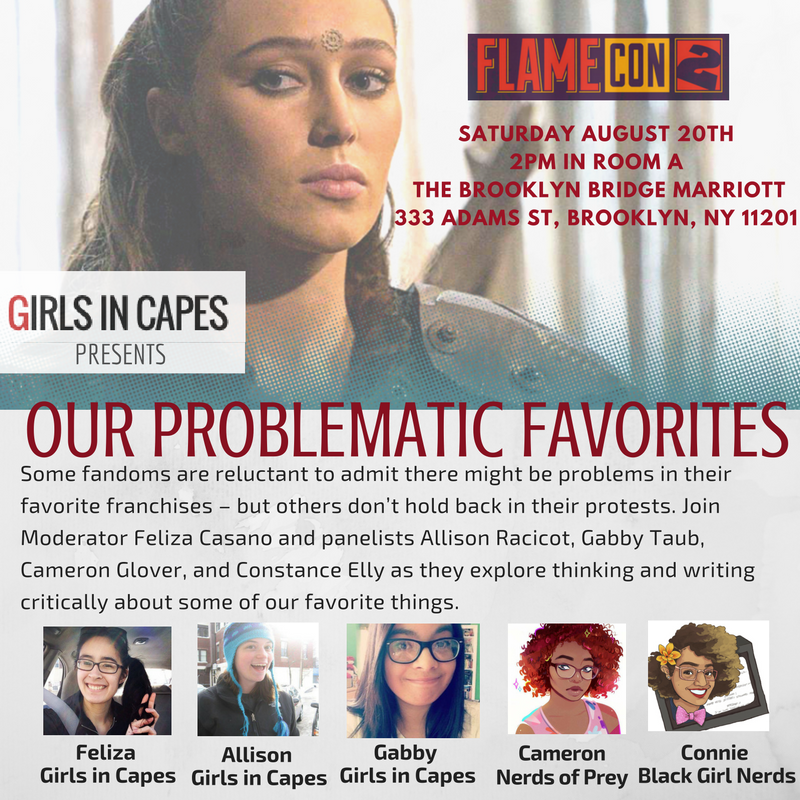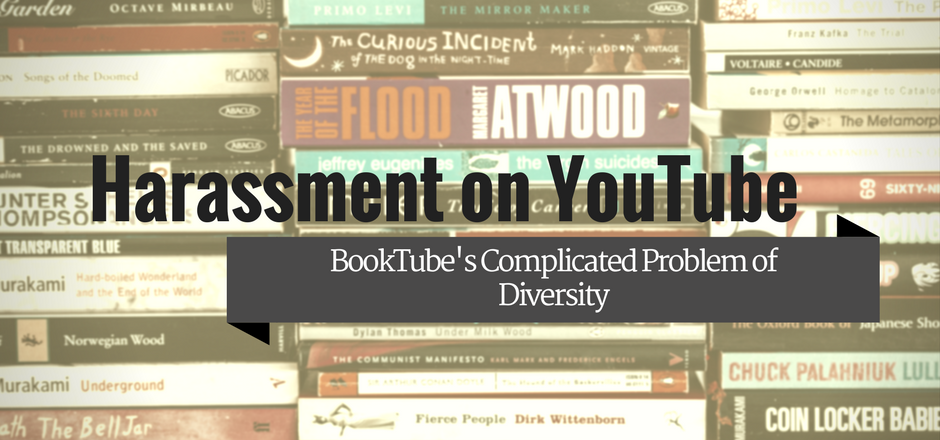One of the defining aspects of being an artist is having a passion for the world around them and a passion to put something out into the world for other people. Passion is what drives artists to do what they do for as little monetary compensation as they usually receive.
Working in and having studied theatre, I’m excited by a good set design or expressive, truthful performance. I’m excited about Shakespeare. Give me all that iambic pentameter. Most of my theatre friends have that same drive and inexplicable passion about creating something that touches people. Because of this, theatrical artists bring what they’re passionate about and inspired by into their work.
I’ve found that there are a lot of things that inspire people to do what they love, not just artists. This is where my greatest passion intersects with our work at Girls in Capes: the immersion of geek culture in the theatrical arts.
Over the last few years, I’ve been exposed to pieces created by and for geeks. Geek culture is another expression of great passion: often people see or read something that really speaks to them or that they really enjoy, and they get very enthusiastic about that thing. This is the great part of geek culture being incorporated into the theatrical arts – it’s a combination of two great interests for a lot of artists.
Most notable – and recognizable – is Starkid Productions’ A Very Potter Musical, which created a musical based on the story of Harry Potter. This theatrical version of fan fiction is prevalent especially with smaller theatre companies that create a lot of their own work or are focused on producing new works. We’re all a bunch of geeks that are pretty good at creating something out of another thing we love.
[blocktext align=”right”]Geek culture is another expression of great passion: often people see or read something that really speaks to them or that they really enjoy, and they get very enthusiastic about that thing.[/blocktext]For those of you not familiar with theatre, we need to discuss that over the course of theatre history, modes of expression have changed and branched, developing in different ways in different countries and eras.
Musicals, for example, are still very popular even though the “golden age” of musicals has past. On the grandest scale, Broadway musicals are extremely popular and extremely expensive, so they bank on spectacle and an engaging story to break even. Wicked is one of the most popular musicals of the last decade, but its source material is actually a very dark book by Gregory Maguire.
Within the genre, musicals have developed in many different ways. While shows like Wicked are meant for Broadway, there are shows created for a more intimate environment, like Rent, which is much more successful when performed in smaller spaces. For a show like Rent, the grittiness and style was effectively realized by putting the audience practically in the living space of the actors.
Many productions parody or adapt existing pieces of geek culture media using theatrical forms. Geek culture in theatre encompasses books, television shows, movies, gaming, and comic books, among many other things.
But I like talking about literary adaptations, and there are lots of those that use theatre as an effective mode of expression. Notable examples in Chicago include Lifeline Theatre’s production of Jane Eyre (2014). In a production that turned away from Realism, they used movement techniques and a strong ensemble to tell the story, incorporating a beautiful set design that allowed for levels and depth in the work and allowed the set itself to be a part of the story.
Though more traditional adaptations exist, more popular are parody pieces that take the stories for a wild ride that the original creators probably never wanted anyone to attempt, but artists have done it anyway. While working on a show in Wicker Park, the theatre space next to ours had up Badfic Love produced by Strange Bedfellows Theatre. From their website, I’ve discovered that the production was about bad fan fiction about Harry Potter. In this case, the creators of the show took parts of fandom culture – not just the source material – and turned it into a show.
Another hilarious example is a show I saw a few weeks ago while attending a friend’s bachelorette party. Called Game of Thongs, the production was a burlesque show produced by Gorilla Tango Theatre, a company that seems to specialize in geeky burlesques. Besides Game of Thongs, Gorilla Tango currently has shows called A Nude Hope and Holy Bouncing Boobies (yes, that’s a Star Wars show and a Batman show a la Adam West’s Batman). I actually really enjoyed Game of Thongs, as it focused its jokes on the TV show and made some spectacular puns.
The dialogue that is started with these types of shows usually address issues and questions about the original source material that fans have in the back of their minds in funny and interesting ways. In AVPM for example, they often reference the fact that Harry is super young to be going on all of these really dangerous adventures.
[blocktext align=”left”]I’m excited about Shakespeare. Give me all that iambic pentameter.[/blocktext]However, using the theatrical form to create a story around an aspect of geek culture media is not the only way in which the two merge. My initial interest in writing about this topic was because of a show I saw recently called Macsith, produced by EDGE, which used the style of Star Wars to tell the existing theatrical piece Macbeth. As opposed to companies using theatrical styles to tell a story, EDGE used a pillar of geek culture as an approach to tell a well-known play in a different way.
One of the coolest things about Shakespeare is that his work has endured for hundreds of years due to the universality of the stories. Part of what makes it so is the flexibility of the storytelling; despite instances of jokes specific to society of Shakespeare’s time, the stories and characters are still relevant and playable. As you can see with Macsith, you can literally set Shakespeare in space and it’s still a powerful story.
A popular design approach for Shakespeare’s work is “period, but not period,” meaning that designers look for ways to make it in some way representative of a particular time period but use a creative approach in the actual design. In this way, Shakespeare is a great conduit for artistic expression and exploration.
In contrast to the trend of adapting a work via parody or fanfiction, EDGE decided to pick a very specific approach with very specific source material to model the adaptation and consequently the designs on. As an adaptation, Macsith used aspects of Star Wars that matched up with aspects of Macbeth and merged them into an engaging, exciting geek-oriented piece. They adapted the names to follow Star Wars social structures, the costumes mirrored characters from the movies, and they combined and assigned roles based on how they would best fit into the Macbeth story.
Because I’m a total Shakespeare geek and I have a mild obsession with Star Wars, this seemed like the best melding of the two and I really wanted to see it. I’m at a point in my artistic career where I’m bored with living room dramas, so I’m looking for different things to see. The beauty of the theatre world in Chicago is that shows are always happening, so something new and totally different can be found very easily, and usually very cheaply. And what’s more intriguing than Shakespeare in space?
EDGE uses stage combat heavily in their storytelling; this was the first time I’ve ever gotten to witness a real-life light saber fight. In a story as blood-soaked as Macbeth, stage combat executed at that level of expertise made the show so much better. I’ve seen many different productions of Macbeth, and I can guarantee that bad stage combat can ruin a show that intense.
The immersion of geek culture in the theatrical world shows how people with the skills and the enthusiasm for particular topics can create work that they’re excited about and have fun making. We see a level of enthusiasm in the fandom world at events like C2E2 and on websites like Tumblr, where there are opportunities for fans to create work that reflects their interests in a topic with fan art and cosplay, for example. The theatrical world presents a performance-based platform for work based on something that already exists that people are excited about and that they want to bring to a wider audience.
—
Christina Casano is a TV & Film Writer at Girls in Capes with an interest in TV shows, feminism, and cute animals. A graduate of Miami University, she is a theatre artist currently based in Chicago.






